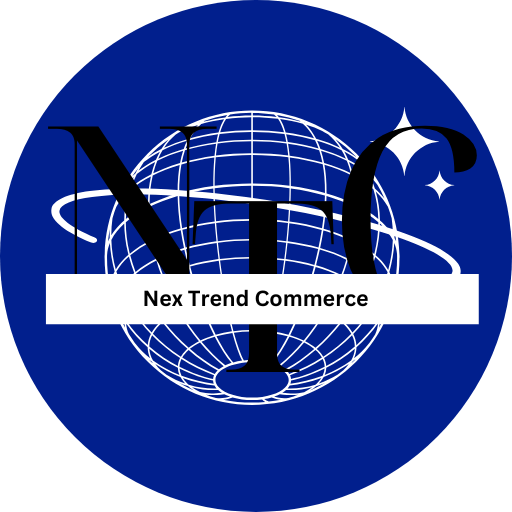Introduction
Competing with large corporations can feel like an uphill battle for small businesses. Big brands have massive budgets, global reach, and access to cutting-edge technologies. But thanks to artificial intelligence (AI), the playing field is leveling. Today, small businesses can leverage AI to enhance their operations, improve customer experience, and make smarter decisions—without breaking the bank. In this blog, we’ll explore how small businesses can use AI to compete with industry giants and thrive in an increasingly competitive market.
Personalized customer experiences
Big brands excel at personalization, but small businesses can do the same with AI-powered tools. AI enables small businesses to analyze customer data and deliver tailored experiences at scale.
How it works:
- AI tools like recommendation engines suggest products based on past purchases.
- Chatbots provide personalized responses and 24/7 support, enhancing customer satisfaction.
- Email marketing platforms powered by AI segment audiences and send targeted campaigns automatically.

Why it’s powerful:
Personalized experiences build customer loyalty and create a sense of connection—something big brands often struggle to achieve at scale.
Data-driven decision making
Small businesses can use AI to make smarter, data-backed decisions. By analyzing trends and patterns, AI helps predict customer behavior, optimize inventory, and identify new market opportunities.
AI tools for data analytics:
- Platforms like Google Analytics and Tableau visualize key insights from your data.
- Predictive analytics tools anticipate trends, allowing you to adjust strategies proactively.
Example:
A small retailer can use AI to analyze seasonal sales patterns, ensuring they stock the right products at the right time—minimizing waste and maximizing revenue.
Automating repetitive tasks
Time is a valuable resource for small business owners. AI can automate tedious, repetitive tasks, freeing up time for more strategic activities.
Tasks that AI can automate:
- Invoicing and billing: Tools like QuickBooks automate financial processes.
- Scheduling and appointment management: AI-powered systems like Calendly streamline scheduling.
- Social media posting: Platforms like Hootsuite and Buffer use AI to optimize post timing for maximum engagement.
Impact:
By automating these processes, small businesses can focus on growth and customer relationships, while maintaining operational efficiency.
Affordable AI marketing solutions
AI-powered marketing tools are no longer exclusive to big brands. Small businesses can now access cost-effective solutions to improve their outreach and engagement.
Key tools:
- Social media ads: AI-driven platforms like Facebook Ads Manager optimize ad targeting and budgets.
- Content creation: AI tools like Jasper or Canva help create professional-quality content quickly.
- SEO optimization: AI-based platforms like SEMrush suggest keywords and strategies to boost website visibility.
Benefit:
Small businesses can reach the right audience with a limited budget, driving higher ROI from their marketing efforts.
Competing on speed and efficiency
Big brands often struggle with bureaucracy and slow processes. Small businesses can use AI to stay agile and respond quickly to customer needs.

Examples of efficiency with AI:
- AI chatbots handle customer inquiries instantly, even outside business hours.
- Inventory management systems powered by AI ensure products are always in stock.
- AI forecasting tools help small businesses adapt to changes in demand faster than larger competitors.
Enhancing cybersecurity
Cybersecurity threats don’t discriminate based on business size. AI can help small businesses protect sensitive customer data and avoid costly breaches.
AI-powered security solutions:
- Real-time threat detection and prevention systems.
- Tools that analyze unusual behavior in networks to flag potential issues.
- Automated updates to ensure your systems are always protected against the latest threats.
Why it matters:
With AI, small businesses can build customer trust by safeguarding their data, an essential element in today’s digital economy.
Real-life example: The AI advantage for small businesses
Take the case of a small online bookstore competing with global giants. By implementing AI tools:
- The store personalized recommendations based on customer reading habits.
- Automated email campaigns kept customers engaged with curated reading lists.
- Predictive analytics ensured popular titles were always in stock.
Within months, the bookstore saw a 25% increase in repeat customers and a 40% boost in sales, proving that AI isn’t just for big players.
Conclusion: Embrace AI and thrive
AI is no longer a luxury reserved for big brands—it’s a game-changing tool that empowers small businesses to compete and succeed. From personalization and automation to data-driven decision-making, AI offers endless opportunities to enhance efficiency, improve customer satisfaction, and grow your business.
The time to embrace AI is now. By investing in affordable, scalable AI solutions, small businesses can gain a competitive edge, build stronger customer relationships, and achieve long-term success.
